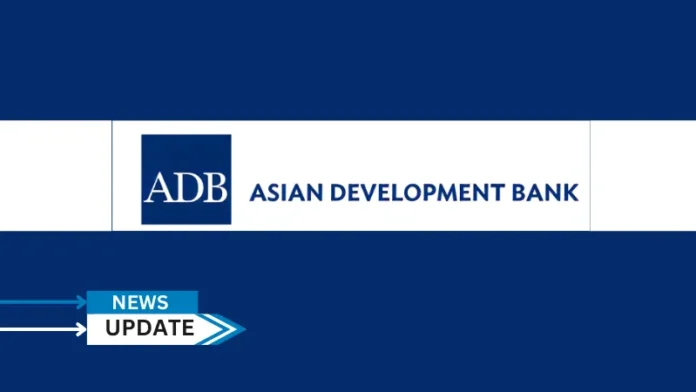
The Asian Development Bank (ADB) has approved up to $288 million in financing for two projects to help Nepal become more green, resilient, and inclusive and to address risks due to climate change and geophysical events.
Read also – GCA, AIIB Partner to Strengthen Climate Resilience in Infrastructure Projects
These projects will promote a sustainable and environment-friendly investment approach to improve livability and enhance economic growth.
Read also – Pavestone Closes Pavestone Technology Fund, at INR 816 Cr
“Nepal’s path to sustainable development faces challenges from a combination of climate-induced and geophysical hazards, along with high exposure and vulnerability of communities, infrastructure, and systems,” said ADB Country Director for Nepal Arnaud Cauchois. “In the rapidly growing Kathmandu Valley, enhancing drinking water security is essential for improving livability, as current supply systems and limited water resources are under significant pressure. The two ADB-financed projects, focused on green development and improved water supply, are designed to support the Government of Nepal in addressing these pressing needs, building resilience, and advancing toward the country’s development goals.”
Through a policy-based loan, ADB is providing $100 million toward subprogram 1 of the Green, Resilient, and Inclusive Development (GRID) Program. This loan supports the government’s GRID approach, a novel homegrown process to development planning and implementation that holistically addresses a set of overlapping and reinforcing crises. The GRID approach enables Nepal to meet its commitments on the conservation of nature, climate adaptation, resilience, disaster risk management, and gender and social inclusion. It addresses sustainability, resilience, and inclusiveness simultaneously and systematically; builds on and scales up Nepal’s successes; and convenes sectors, stakeholders, and financing around a joint platform for action. The GRID budget support operation was designed in coordination and collaboration with the World Bank, which is providing parallel financing for its Second GRID development policy credit.
The first subprogram focuses on supporting the approval of policies and laws that will ensure sustainable water resource management, disaster preparedness, promotion of alternative sources of energy, and balancing conservation needs and infrastructure development. This also aims to enhance coordination among stakeholders by defining the roles and responsibilities of different levels of government in fulfilling commitments related to climate change and disaster risk management. The program comes with $1 million technical assistance grant from the Technical Assistance Special Fund (TASF) to support policy actions under the succeeding subprogram 2 and other objectives, which include strengthening the capacity and knowledge of executing and implementing agencies.
The Kathmandu Valley Water Supply Improvement Project (Phase 2) will construct climate- and disaster-resilient urban water supply infrastructure and strengthen systems to deliver year-round potable water supply to the Kathmandu Valley, benefitting at least 2 million people by 2030. It will relocate and construct the Melamchi River water diversion intake system, increase the capacity of the water treatment plant at Sundarijal, and expand the water supply distribution system. For evidence-based operations and real-time performance monitoring of the entire water supply system, the project will establish IT-enabled systems such as a digital customer database, a decision support system with a multi-hazard early warning system for the bulk water transmission, and a smart water management system for the water distribution network.
ADB will provide a $170 million concessional loan and a $15 million grant from the Asian Development Fund, which provides grants to ADB’s poorest and most vulnerable developing member countries. The Japan Fund for Prosperous and Resilient Asia and the Pacific, financed by the Japanese government and administered by ADB, will contribute a $3 million grant.
“The Melamchi intake restoration strategy outlined in the project has the potential to serve as a model for building resilient water supply systems in vulnerable catchment areas,” said Mr. Cauchois.
In addition, ADB is providing a $1.75 million technical assistance grant from TASF for the investment project to strengthen the capacity of the water supply operator and the asset owner by modernizing their information technology systems, standard operating procedures for water utility operations, institutionalizing equitable service delivery models and designing a targeted communication strategy. Additionally, it will fund policy and institutional reform actions under ADB pipeline programs for the Kathmandu Valley.
About ADB
The Asian Development Bank (ADB) is committed to achieving a prosperous, inclusive, resilient, and sustainable Asia and the Pacific, while sustaining its efforts to eradicate extreme poverty. It assists its members and partners by providing loans, technical assistance, grants, and equity investments to promote social and economic development. Established in 1966, it is owned by 69 members—49 from the region.





